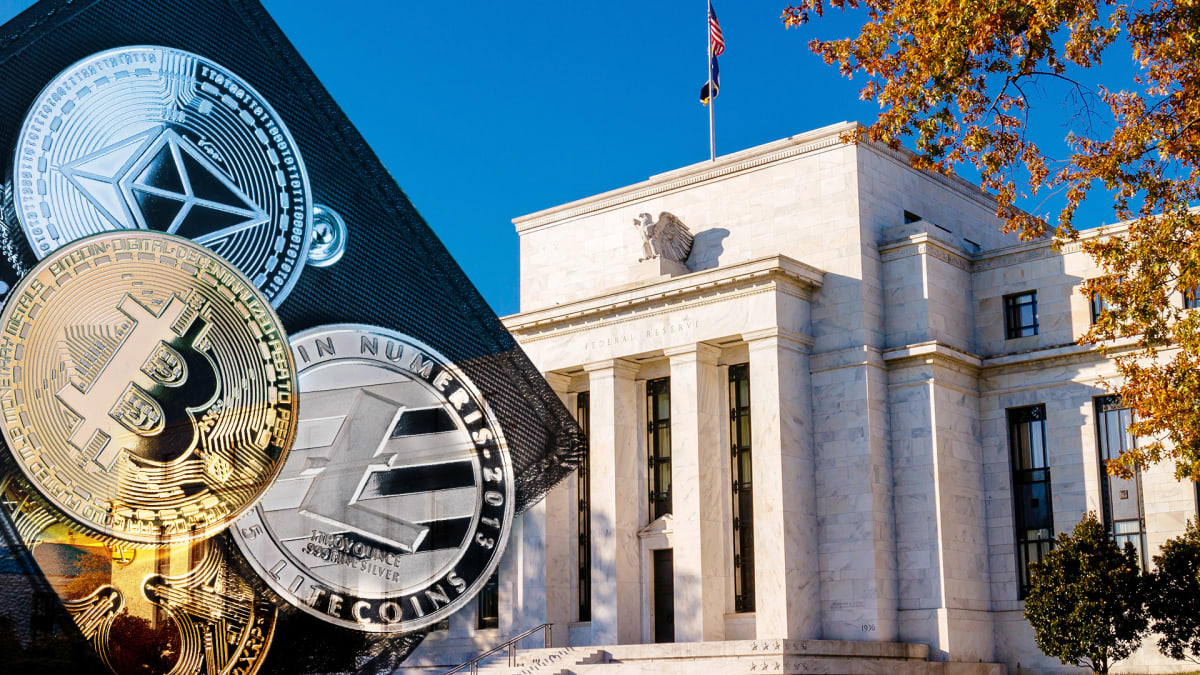
A terrible year for cryptocurrencies in 2022 accelerated toward a calamitous bottom on Nov. 8 as the value of the now-bankrupt FTX exchange plummeted.
The company was a mechanism people used to buy and sell cryptocurrencies such as bitcoin and ether. But confidence in FTX was destroyed as its customers hurried to withdraw their money by selling the cryptocurrencies they had previously purchased using the platform.
Sam Bankman-Fried, the former CEO of FTX, after a series of revelations and legal actions, plead not guilty to fraud and other charges in a Manhattan federal court on Jan. 3.
The collapse of FTX had devastating effects on the entire crypto-asset sector, including companies such as BlockFi, Three Arrows Capital, Voyager Digital and Celsius Network.
Federal Agencies Warn Banks of Crypto Risks
At the very beginning of the new year, a statement was issued by three federal bank regulatory agencies, also on Jan. 3, that highlighted risks for banking organizations associated with the sector.
The Board of Governors of the Federal Reserve System, the Federal Deposit Insurance Corporation and the Office of the Comptroller of the Currency, described the agencies' approaches to supervising the area.
"The agencies will continue to closely monitor crypto-asset-related exposures of banking organizations, and, as warranted, will issue additional statements related to engagement by banking organizations in crypto-asset related activities," a joint press release stated.
The statement noted the difficulties cryptocurrency experienced in 2022.
"The events of the past year have been marked by significant volatility and the exposure of vulnerabilities in the crypto-asset sector. These events highlight a number of key risks associated with crypto-assets and crypto-asset sector participants that banking organizations should be aware of ..." it warned.
Several key risks associated with crypto-assets are listed in the statement as well. These dangers, it says, are demonstrated by volatility and vulnerabilities during 2022.
"The agencies continue to assess whether or how current and proposed crypto-asset-related activities by banking organizations can be conducted in a manner that is safe and sound, legally permissible, and in compliance with applicable laws and regulations, including those designed to protect consumers," the press release noted.
Key Risks Agencies See For Banks
Following is the list of risks bulleted out in the statement:
- Risk of fraud and scams among crypto-asset sector participants.
- Legal uncertainties related to custody practices, redemptions, and ownership rights, some of which are currently the subject of legal processes and proceedings.
- Inaccurate or misleading representations and disclosures by crypto-asset companies, including misrepresentations regarding federal deposit insurance, and other practices that may be unfair, deceptive, or abusive, contributing to significant harm to retail and institutional investors, customers, and counterparties.
- Significant volatility in crypto-asset markets, the effects of which include potential impacts on deposit flows associated with crypto-asset companies.
- Susceptibility of stablecoins to run risk, creating potential deposit outflows for banking organizations that hold stablecoin reserves.
- Contagion risk within the crypto-assetsector resulting from interconnections among certain crypto-asset participants, including through opaque lending, investing, funding, service, and operational arrangements. These interconnections may also present concentration risks for banking organizations with exposures to the crypto-asset sector.
- Risk management and governance practices in the crypto-asset sector exhibiting a lack of maturity and robustness.
- Heightened risks associated with open, public, and/or decentralized networks, or similarsystems, including, but not limited to, the lack of governance mechanisms establishing oversight of the system; the absence of contracts or standards to clearly establish roles, responsibilities, and liabilities; and vulnerabilities related to cyber-attacks, outages, lost or trapped assets, and illicit finance.
The full statement can be found on the Federal Reserve website.







